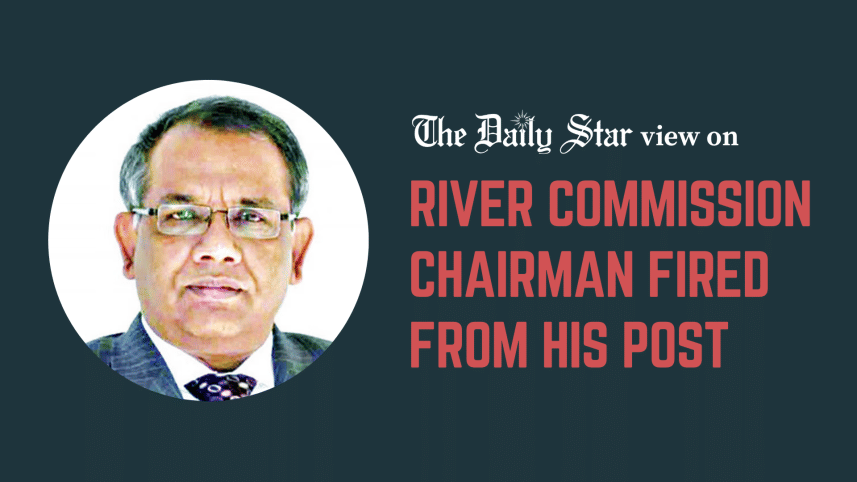Don’t punish bold public officials

It is frustrating to learn of the abrupt removal of Dr Manjur Ahmed Chowdhury from his post as chairman of the National River Conservation Commission (NRCC). His termination, halfway through his three-year contract and about three weeks after he publicly criticised "a female minister from Chandpur," marks an unceremonious end to a brief but boisterous stint that often saw powerful people being taken to task for their alleged involvement in environmental degradation – an inspiring exception, really, to the pliant former bureaucrats that usually lead these statutory bodies.
Apparently, this was done "in public interest," as the public administration ministry claimed in a gazette, without offering any explanation. It is possible to connect the dots, however, as the minister he had referred to could only be Dipu Moni, also a joint general secretary of Awami League. If the treatment received by other non-compliant public officials recently – such as the sacked Deputy Attorney General Imran Ahmed Bhuiyan or just-retired judge Md Emdadul Haque Azad – is any indication, one could say that Manjur had it coming.
Hours before his sacking was made public, he himself admitted to this daily that he expected reprisals for his bold assertions. Moreover, before he alluded to the education minister in connection with the unchecked activities of politically-backed river grabbers and sand lifting syndicates, he also derided the Dhaka North City Corporation mayor and Dhaka Wasa managing director, among others. Evidently, he made some powerful enemies, and it will not be surprising if that somehow contributed to his downfall.
The head of an institution like NRCC, tasked with protecting rivers but having no executive power to do so, has a tricky job. They can only make recommendations and wait for cooperation from relevant government agencies. Against this backdrop, we must commend one who is not afraid to try harder and start unpleasant conversations about accountability for assaults on our rivers. However, the government's termination decision, without addressing the critical issues often raised by Manjur Ahmed Chowdhury, puts a question mark on its commitment to saving rivers from pollution and encroachment. We urge the government to empower – and not punish – officials who speak out in public interest.



 For all latest news, follow The Daily Star's Google News channel.
For all latest news, follow The Daily Star's Google News channel. 


Comments